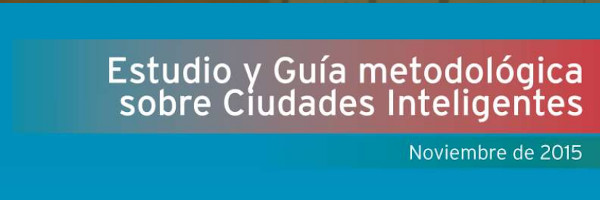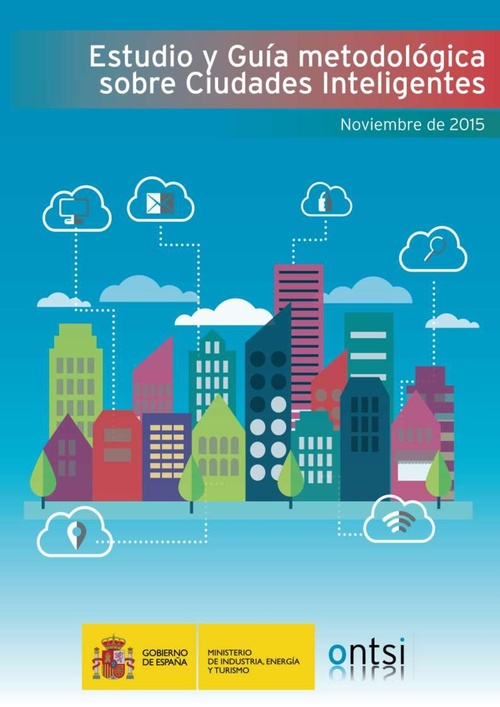Methodological guide on smart cities
| Report | |
|---|---|
| Image | 
|
| Published | 2015-11-30 |
| Point(s) of Contact | |
| Organization(s) | Minister of Industry Spain |
| Where | Madrid Spain |

| |
The study defines the smart city model for all Spanish municipalities and analyzes its current situation.
The Minister of Industry, Energy and Tourism, José Manuel Soria, has presided over the presentation of the "Study and methodological guide on Smart Cities", carried out by Deloitte for MINETUR, in which a Smart City model is defined for all municipalities Spanish, which allows to have information on the starting state of the Spanish city councils in the smart field and provide them with the necessary tools to ensure their transformation into smart cities.
The study, presented by Josep Palet , managing partner of Deloitte's Public Sector Industry , analyzes the starting situation of the services of 200 representative Spanish municipalities of each Autonomous Community with a population that ranges between 20,000 and 100,000 inhabitants, and included among the actions carried out within the framework of the National Smart Cities Plan, of the Digital Agenda for Spain .
Guide to transform into a Smart City
The document includes a package of tools designed to facilitate the process of transformation towards smart cities that includes an evaluation tool, a roadmap to achieve the Smart City model and a guide for the search for financing. In addition, it incorporates a catalog of 637 ICT solutions provided by 73 different companies.
A value chain has been designed that describes the different activities and phases to be carried out in the smart transformation of a city. This chain makes it possible to characterize the companies that offer solutions for smartcities and distinguishes between those that provide connectivity, professional advice, specific solutions for municipalities, comprehensive services or the supply of large information integration platforms and municipal services.
Smart Governance services, the most implemented
Among the main results obtained in the analysis, the fact stands out that, in practically all of the 200 municipalities analyzed, services linked to public governance (Smart Governance) are implemented based on transparency, open government, participation and digital administration, among others. others.
On the contrary, those linked to the use of ICT in citizen collaboration and digital inclusion (Smart People) are underdeveloped and have ample room for improvement.
In an intermediate situation, the services corresponding to the areas of Smart Environment (environment, waste management, energy, water), Smart Living (health, education, culture and leisure, social affairs, security, urban planning) and Smart Economy ( tourism, consumption, commerce, employment) that present medium implantation levels and a similar degree of development between them.
According to the study, the main differences in smart services, based on the size of the analyzed municipalities, focus on mobility services related to transport, traffic or ICT connectivity (Smart Mobility), which reach greater development in the municipalities with more of 100,000 inhabitants.
Seven types of Smart Territory
In addition to defining the Smart City model, in accordance with the main public and private agents involved, the report introduces the term Smart Territory to refer to the group of municipalities with less than 20,000 inhabitants, based on their economic, socio- demographic and geographic, for the implementation of intelligent solutions and services that respond to the needs of its population. In this sense, it proposes 7 types of smart territories based on the challenges to be faced and distinguishes between municipalities with an aging population, with low population density, island territories, border territories and those whose main sector of activity is tourism, trade or agriculture.